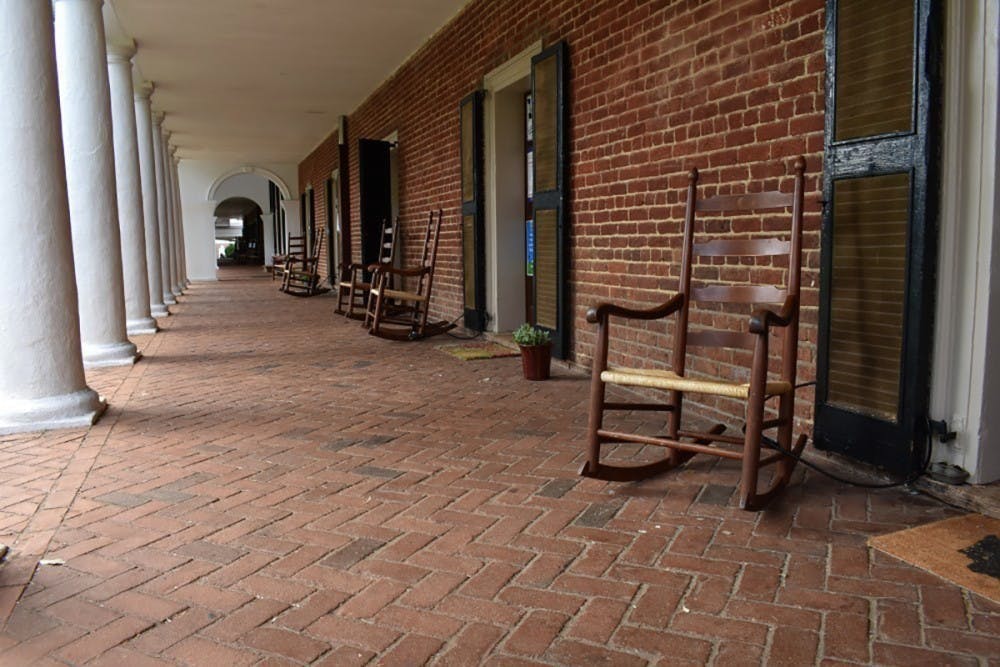中文版请点击此处
Recently, controversy emerged over a sign on one Lawn resident’s door criticizing the University. Calls for the sign’s removal due to its criticism of the University, as well as an instance of profanity on it abounded online, but the University announced they would not remove the sign or punish the student in question. This important commitment to students’ first amendment rights sets a clear precedent for protection of future student speech. Still, the University must continue to protect all forms of first amendment-protected student speech, even when that speech is considered objectively offensive and harmful by the student body.
For example, as Black Lives Matter protests sweep the nation, calls for social, racial and economic justice have been met with intense, often highly offensive, backlash. These statements come in a variety of forms, but for college students, they often appear as social media posts or video recordings. While disgust with these statements is warranted, calls for the individuals responsible for or depicted in them to be punished by their universities is not. While many of these statements are unambiguously hateful and offensive, a desire to seek social justice and eliminate hate should not — and in fact cannot — come at the expense of eliminating free expression. As offensive videos and social media posts from students surface, the University must protect their students’ rights to free speech — no matter how controversial.
The first amendment does not exist to protect reasonable opinions — it exists to protect the unreasonable, the offensive and the unpopular. When there is an instance of speech that is clearly hateful, the solution is not to silence it, but to use our own free expression to radically disagree. As a public university, U.Va. is required to uphold this principle and protect student speech, even when hateful.
In fact, the first amendment is clear about the protected status of so-called “hate speech” — the label most often given to offensive speech in order to justify its elimination. Hate speech is not a legal category, and as awful as hateful statements can be, they are ultimately protected by the first amendment, and for good reason. Ultimately, free expression cuts both ways — and if we are to uphold the values of a free and liberal society, it requires protecting the speech rights of those with whom we deeply disagree. Further, social standards and attitudes change dramatically over time. While it may sound like a good idea to ban racial epithets, deliberate misgendering or white nationalist catchphrases, one can easily envision a world in which the mechanisms to ban hate speech could be misused to target the language of social justice movements and silence dissent.
Further, free expression has intrinsic value. If we want to live in a world in which freedom of belief and thought is protected, that requires both protecting the beliefs and thoughts of historically marginalized groups and the expression of the intolerant. This isn’t to discount the real harm the language of racism, sexism or homophobia — among many others — can cause. In fact, I very strongly believe that this kind of speech makes our world worse — particularly for those targeted by it. However, I also believe that forcibly silencing protected speech is also harmful, and in fact in some ways more harmful due to the irreparable damage it does to the fabric of a democratic society. True democracy requires free expression. In fact, this free expression gives the clearest recourse to hateful speech.
When we come across a statement that we find deeply offensive, the solution is to use our own freedom of expression to show opposition to the message, not to seek legal punishment for the speaker. Silencing those with whom we disagree is not the appropriate way to achieve the goals of social progressivism. Rather, we must use our own protected speech to express anger, outrage and fundamental disagreement with hatred. Someone may lose friends, opportunities or their nongovernment job for their statements. While viewpoint discrimination is illegal in public forums, outside of that, political or social belief is not a protected class, nor does a commitment to free expression require silence in the face of hate. In fact, it requires a commitment to vocal opposition to hatred — just not an attempt at legal recourse for the hateful speaker.
As a public university, U.Va. is required to follow the constitution. While the University historically has a solid track-record of protecting free speech — for example achieving a green light rating from the Foundation for Individual Rights in Education — it must not forget that commitment in light of an increasingly powerful social movement. Refusing to punish students who make racist statements is not the same thing as protecting racism. Rather, it is protecting free expression — and in order for free expression to be truly free, it must include offensive speech.
Emma Camp is an Opinion Columnist for The Cavalier Daily. She can be reached at opinion@cavalierdaily.com.
The opinions expressed in this column are not necessarily those of The Cavalier Daily. Columns represent the views of the authors alone.







